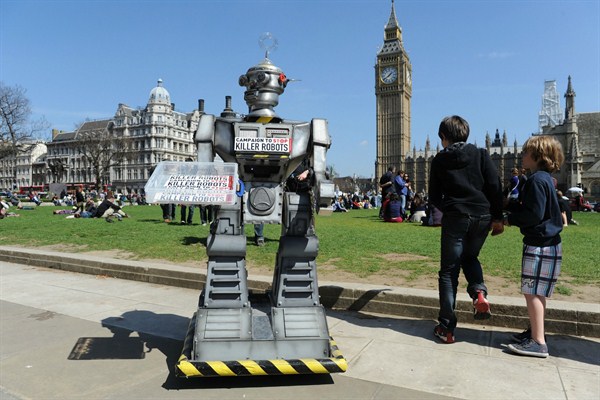Autonomous weapons are on the agenda in Geneva this week. The Group of Governmental Experts on Lethal Autonomous Weapons Systems, which has members and observers drawn from national governments, intergovernmental organizations and civil society, is holding its first meeting since it was established last year under the auspices of the U.N. Convention on Certain Conventional Weapons, or CCW. On the table for discussion are the technical, legal, military and ethical dimensions of machines capable of making battlefield decisions without human oversight.
The stakes are high. Autonomous weapons have, in recent years, catapulted into the defense and security strategies of the world’s leading powers. Top-ranking officials in Russia, China and the United States, recognizing the military potential of advanced robotics and artificial intelligence, have invested billions into developing the technologies. That has led a growing ensemble of civil society actors to voice concerns that automated warfare will jeopardize human rights, international law and global security. A litany of groups and individuals, including Nobel Peace Prize laureate Jody Williams, have advocated an international prohibition on autonomous weapons, pinning their hopes on the United Nations and the CCW.
But any success on banning “killer robots” will not be immediate and may require activists to adjust their expectations. Divergent national interests and murky ethical questions make regulating autonomous weapons a difficult proposition. Countries are far from consensus on how and even whether to regulate these fast-emerging technologies. This week’s meeting, which wraps up today, will not produce a formal agreement, but it does represent a major step forward for what is to be one of the 21st century’s defining international debates.

